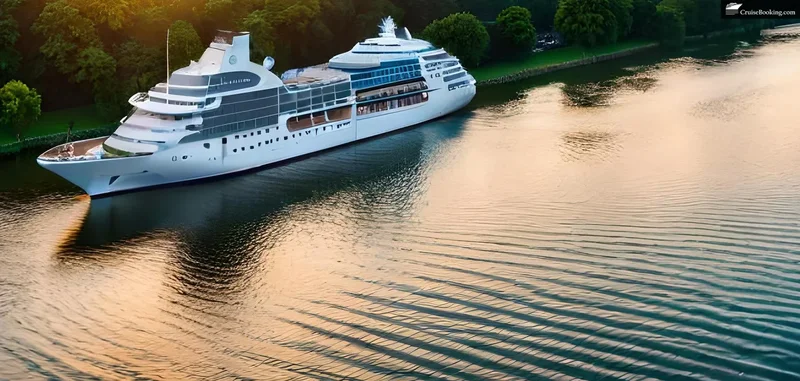So, Norwegian Cruise Line wants a pat on the back. They want a cookie. Their massive, floating city, the Norwegian Epic, veered off its scheduled path of delivering 4,000 sunburnt tourists to the next Mediterranean buffet to rescue 63 people from a sinking sailboat.
The press releases rolled out, smooth as silk. The company told USA Today they responded to a “mandatory” search and rescue, provided “medical evaluation, food and other items for their comfort,” and then handed the migrants over to Greek authorities. End of story. The ship, we’re assured, resumed its 11-day itinerary of fun and profit.
“Mandatory.” That’s the word that sticks in my craw.
Let’s be brutally honest here. This wasn't a choice. It wasn't an act of corporate benevolence. It was the law. The ancient, fundamental law of the sea: you see a vessel in distress, you render aid. Calling this a heroic act is like praising a driver for stopping at a red light. Norwegian did the absolute bare minimum required of them by international maritime law, and their PR department immediately spun it into a feel-good story about their big, caring heart. It's a performance, and we're all expected to applaud.
But what are we actually applauding? The fact that a multi-billion-dollar corporation, whose entire business model is selling a fantasy of escape, briefly collided with a reality so harsh it’s almost unimaginable to the people sipping piña coladas on the lido deck?
A Tale of Two Boats
Picture the scene for a second. I mean, really picture it. On one side, you have the Norwegian Epic. A 1,081-foot behemoth with 19 decks, a water park, a casino, multiple theaters, and enough food to feed a small army. It’s a monument to excess, a self-contained bubble of Western comfort gliding through the Ionian Sea. Its passengers are worried about their dinner reservations and whether they packed enough sunscreen.
On the other side, you have a 30-foot sailboat. A tiny, pathetic little vessel, packed with 63 human beings. Not "individuals," as the sterile press release calls them. People. Fleeing God knows what, crammed into a space meant for maybe six, hoping to not die.

The cruise ship, this floating palace, pulls alongside. Imagine the sound—the low, deafening thrum of its engines drowning out the desperate shouts from the smaller boat. Thousands of passengers, phones in hand, lean over the railings to capture the "drama." It's an unscheduled shore excursion into the real world. A little bit of poverty tourism to break up the monotony of the all-you-can-eat shrimp.
This is more than just a rescue. It’s a metaphor for our entire disconnected world, isn't it? The sheer, obscene gap between the observers and the observed. And the cruise line’s statement, with its talk of “patience and understanding” from their guests for the “unexpected interruption,” just crystallizes the whole damn thing. An interruption. That’s all this life-or-death struggle was to them. A brief delay before getting back to the scheduled fun. It’s grotesque. No, grotesque isn't strong enough—it's a moral black hole.
The Part of the Story They Don't Tell
So the 63 migrants were brought aboard, given a meal, and then dropped off in Kalamata, Greece. The Norwegian Epic sailed away, its decks washed clean of reality, and the story, for us, is over.
But is it? What happened to those 63 people? Where are they now? Are they in a detention center? Were they sent back to where they came from? Are they safe? The press release, offcourse, offers nothing. The migrants are a plot point, not protagonists. They served their purpose as props in Norwegian's little corporate drama, and now they've been conveniently written out of the script.
This is the part we're not supposed to think about. We're supposed to see the headline—Cruise Ship Diverts to Rescue 63 Stranded People—and feel a flicker of warmth. "Oh, that's nice," we're meant to say, before scrolling on to the next distraction. The system is designed to give us these neat, tidy narratives with clean endings.
But this story doesn't have a clean ending. It has a gaping, ugly hole where the humanity should be. The rescue wasn't the end of their journey; it was just one more terrifying, uncertain chapter. A chapter that Norwegian Cruise Line has no interest in telling, because it doesn’t sell cruise packages. It doesn't fit the brand.
I get it, it ain't their job to solve the global migration crisis. But don't you dare serve me this sanitized, self-congratulatory garbage and expect me to swallow it. Don't pretend this was anything more than a legal obligation that you turned into a marketing opportunity. The whole thing just leaves a sour taste in my mouth, and honestly... I'm just tired of being lied to.
The Story Ends Where It Should Begin
Let's cut the crap. The real story here isn't about a cruise ship. It's about the fact that our media and corporate culture can take a desperate act of human survival and repackage it as a heartwarming corporate anecdote. The rescue was mandatory. The PR spin was a choice. And it’s a choice that says everything about a world that values the comfort of its tourists infinitely more than the lives of the people floating, forgotten, just beyond the railing.
